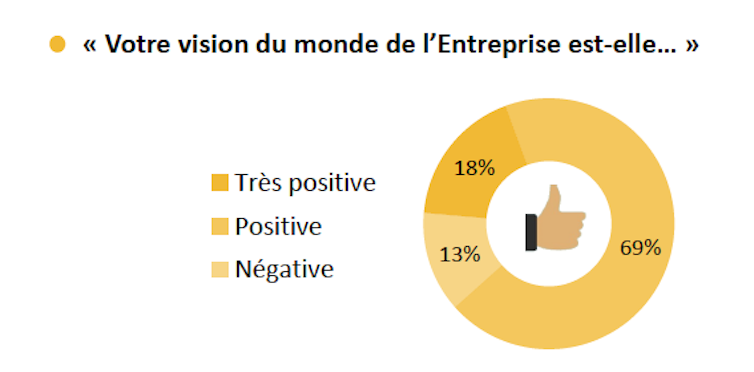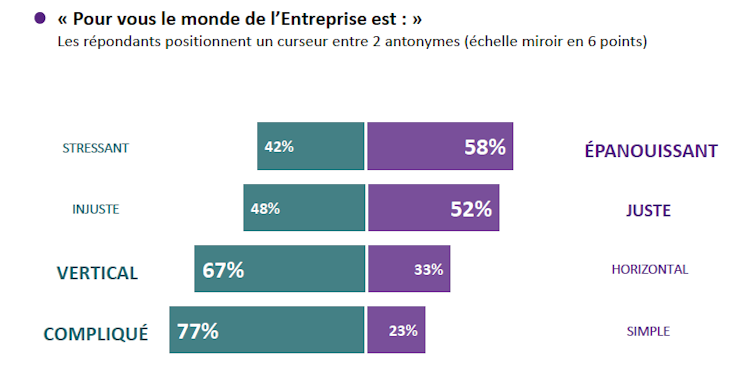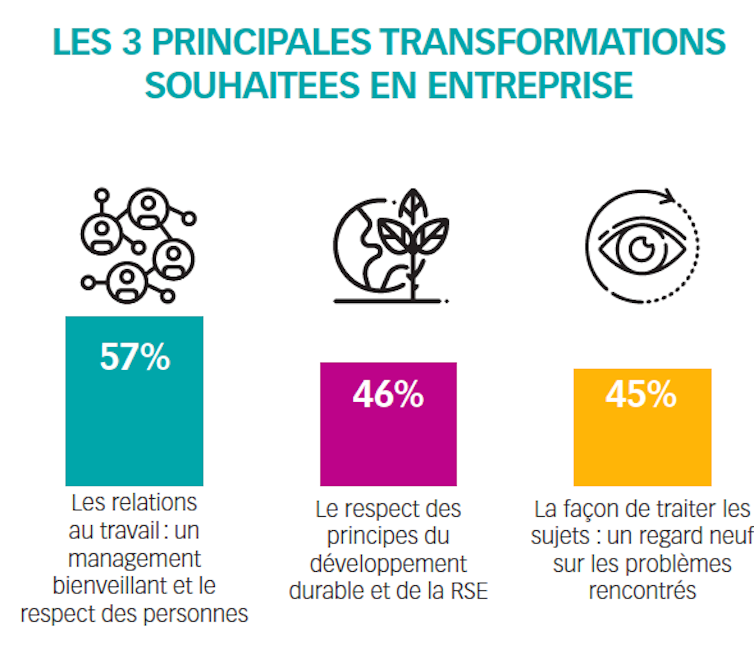Caring management and CSR: what the younger generations expect
Young people have a generally positive image of the company, according to the study
"NewGen for good: how will the new generation transform business?". Manuelle Malot explains, in an article originally published in French in The Conversation, how and why.
Young people have a generally positive image of the corporate world, according to our study « NewGen for good : how will the new generation transform the corporate world? ». For example, 69% of future graduates and 18% of future graduates say they have a "positive" and "very positive" view of the business world.
For the 2,700 or so students in their final year of higher education we surveyed, the company is in particular an "economic heart", with "a central role in the dynamism of the world", as it is the company that "creates jobs", "advances causes", and it is therefore "through the company that change comes".

Future graduates believe that "the company has the power to transform the human being" by offering a space for self-improvement. The company, perceived as "a place where people meet, network and socialize", is the setting for a collective adventure. But young graduates also believe that companies hold the economic power and therefore the responsibility to change things.
No naivety
However, young people are not naive about what awaits them in their working lives. They are aware that efficiency can come "at the expense of personal fulfillment and human relations". The corporate world is sometimes seen as "old-fashioned", "vertical and complicated", "inefficient" and lacking in diversity.

That's why 61% of future graduates surveyed believe that companies will be undergoing significant change over the next 5 years.

Among the desired transformations, the main one concerns working relationships and respect for people (57%). They would like to see the development of benevolent management and the optimization of working conditions, because "well-being leads to better results than continuous pressure", as one survey participant put it.
The second most desired transformation relates to respect for the principles of sustainable development and corporate social responsibility (CSR) (46%). This trend is more pronounced among the women than among the men surveyed. According to future graduates, the company must "improve its impact on society" by taking greater account of "its ecological footprint".
Values to consider carefully
Finally, future graduates want the company to transform the way it deals with issues, by taking a fresh look at the problems encountered (45%). This means "making corporate decision-making more fluid, with a more horizontal hierarchy, favoring consultation at the decision-making levels most relevant to the issues at hand".

The study's findings are all the more important for recruiters as future graduates insist that they will choose their company first and foremost on the basis of their values, even more than on the promise of an advantageous salary or career management policy. To the question "How important will each of these criteria be to you in choosing your employer?", the most frequent answers indeed concern employee diversity and the CSR approach.
At a time when companies are adopting a "raison d'être" as part of the Pacte law, this is valuable information to consider in anticipation of recruitments that are becoming increasingly difficult...
This article is based on the study «NewGen for good: how will the new generation transform business?» published by The NewGen Talent Centre at EDHEC Business school.
This article is co-published with The Conversation under a Creative Commons license. Read the article on The Conversation.




